In British slang, "naff" signifies something that's unfashionable or lacking in style, tracing back to Polari origins with meanings tied to being tasteless or uncool. The term's journey through British cultural landscapes showcases its evolution, influenced by media, celebrity endorsements, and societal shifts. Its interpretation varies regionally, reflecting the dynamic, localized nuances of English dialects. Understanding "naff" demands an appreciation of these cultural and linguistic layers, offering insights into the broader fabric of British society and its changing attitudes. As you explore further, you'll uncover the intricate ways language molds our understanding of culture and identity.
Key Takeaways
- 'Naff' is British slang for something that is considered uncool, tacky, or lacking in style.
- It has roots in Polari, a secret language used by certain British subcultures.
- The term gained widespread popularity from British television, especially the 1970s sitcom "Porridge."
- Usage varies regionally across the UK, reflecting local linguistic influences.
- 'Naff' has evolved from its original meanings, reflecting broader societal changes and attitudes.
Origins of 'Naff'
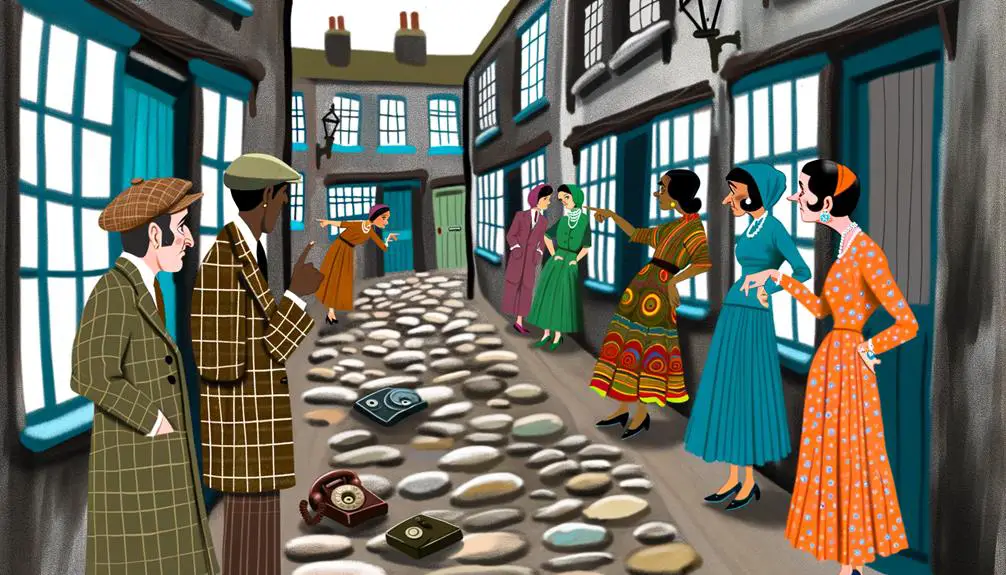
The origins of the term 'naff' are shrouded in British cultural history, tracing back to a time when slang served as both a mirror and a molder of societal norms. You'll find that the path leading to the contemporary usage of 'naff' winds through the intricate alleyways of Polari roots, sparking an etymological debate that still captures the interest of linguists today.
Polari, a form of cant slang used primarily by the British gay community in the mid-20th century, is widely considered the cradle of 'naff.' This argot, a motley lexicon drawn from Italian, Romani, Yiddish, and London slang, offered its speakers a discrete mode of communication in an era when homosexuality was criminalized. 'Naff' emerged within this linguistic melting pot, ostensibly as a term signifying something that was considered square, tasteless, or overly plain. However, the term's exact genesis within Polari remains a point of contention among scholars.
The etymological debate surrounding 'naff' further intensifies when one considers its potential origins beyond Polari. Some theories propose that 'naff' was initially an acronym used in polite company to replace more offensive language, with suggestions ranging from 'Not Available For F*ing' to 'Normal As F*.' Nevertheless, these interpretations, while colorful, lack solid documentary evidence to support their claims.
In dissecting the origins of 'naff,' it becomes apparent that the term is much more than a simple pejorative; it's a linguistic artifact that embodies the complexities of British societal shifts, the evolution of language as a tool for both inclusion and exclusion, and the enduring mystery of slang's evolution.
'Naff' in Popular Culture
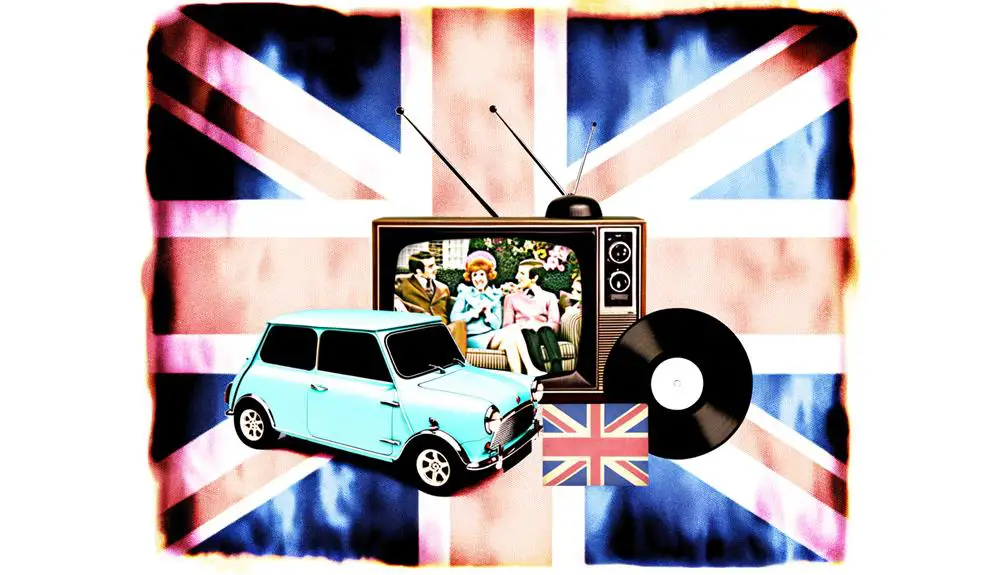
Over the years, 'naff' has woven itself into the fabric of popular culture, evolving from its underground origins to become a staple of British vernacular with significant appearances in television, music, and media. This term's journey into the mainstream isn't merely a tale of linguistic evolution but a reflection of societal shifts and the ever-changing landscape of British popular culture.
TV adaptations have played a pivotal role in the ascent of 'naff' within the public consciousness. Scriptwriters, keen on capturing the authentic essence of British life, have seamlessly integrated 'naff' into dialogues, thereby not only enhancing the relatability of characters but also serving as a vehicle for cultural commentary. These portrayals have contributed to a nuanced understanding of 'naff', depicting it as more than just a derogatory term but a complex expression of taste, class, and social dynamics.
Celebrity endorsements have further cemented 'naff's' place in popular culture. High-profile figures, unafraid to embrace and even celebrate the 'naff' aspects of their lives, have played an important role in redefining the term. Through candid interviews and social media, celebrities have showcased how 'naff' can embody a sense of irony, self-deprecation, and authenticity, traits highly valued in contemporary society. This reclamation and embrace of 'naff' by public figures haven't only broadened its appeal but have also sparked conversations around authenticity and the value of embracing one's true self, irrespective of societal judgments.
In essence, 'naff' has transcended its origins to become a multifaceted term enriched by its portrayal in popular culture, reflecting broader societal attitudes and the complexities of identity and expression in modern Britain.
Variations and Meanings
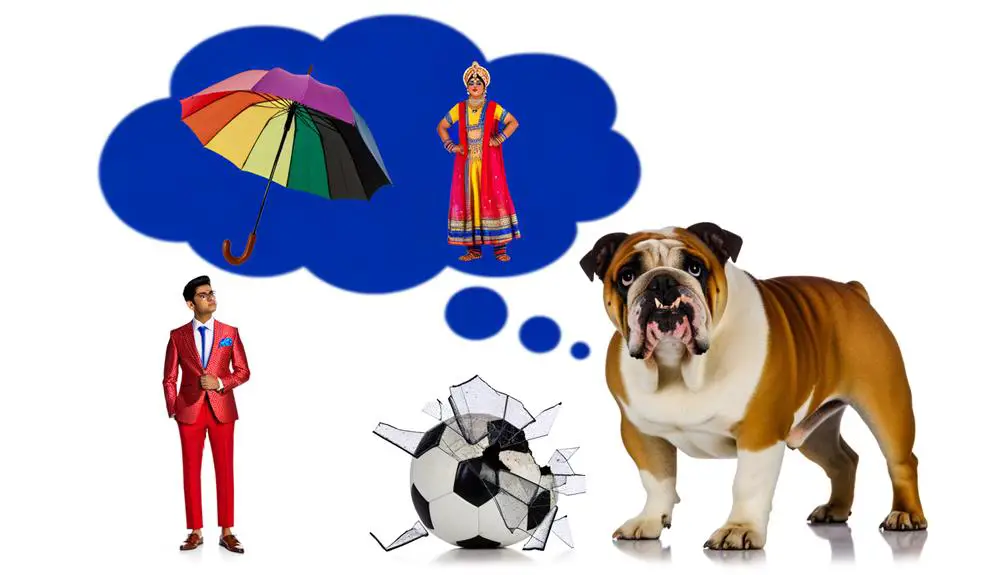
Delving into the term 'naff', it's imperative to understand its various interpretations and the nuanced meanings attributed to it within different contexts of British culture. Originating as slang, 'naff' has evolved, showcasing a versatility that's deeply embedded in regional dialects and pronunciation variations. Initially, it conveyed a sense of being uncool or tacky, yet, as you'll discover, its application and connotation can vary greatly across the United Kingdom.
In certain regions, 'naff' might retain its traditional meaning, denoting something that lacks style or appeal. However, regional dialects have nuanced this interpretation. For example, in some parts of Northern England, 'naff' can also suggest something is overly simplistic or not up to standard, expanding its usage beyond mere questions of taste. This regional variation emphasizes the term's adaptability and the influence of local linguistic ecosystems on its evolution.
Pronunciation variations further color the term's interpretation. The emphasis on the vowel can affect the word's intensity and, by extension, the level of disdain or disapproval being expressed. In some dialects, a softer pronunciation might be used for mild disapproval, while a harsher tone signals stronger contempt.
Understanding 'naff' thus requires an appreciation of the intricate tapestry of British linguistic culture. It's a term that serves as a linguistic chameleon, adapting its meaning and intensity to fit the contours of regional speech patterns and social contexts. This adaptability highlights the dynamic nature of slang and its role in reflecting the cultural and linguistic diversity of the United Kingdom.
Usage in Modern Britain

In modern Britain, 'naff' has woven itself into the fabric of everyday language, reflecting broader societal shifts and cultural trends. Initially coined in the mid-20th century, its persistence and adaptability underscore the dynamic nature of slang within the English lexicon. An analysis of 'naff''s current usage reveals its intricate role in contemporary British culture, highlighting not just linguistic evolution but also regional variations and sociolinguistic nuances.
- Regional Differences: 'Naff' exhibits a fascinating geographical diversity in its usage across the United Kingdom. In some regions, it retains its traditional meaning of something being unfashionable or tacky, while in others, it has morphed into a broader term of disapproval or disdain. This variability underscores the localized nature of slang and its capacity to serve as a marker of regional identity.
- Slang Evolution: The journey of 'naff' from marginal to mainstream mirrors the evolution of British slang at large. Its adoption by various subcultures and eventual permeation into the general public's vocabulary exemplifies the fluidity of informal language and its responsiveness to social change.
- Cultural Trends: Today, 'naff' is more than a mere adjective; it's a linguistic tool that reflects societal attitudes and preoccupations. Its usage can signal irony, nostalgia, or even affection in the right context, demonstrating the complexity of meaning that slang can convey.
The continued relevance of 'naff' in modern Britain speaks to the vibrant and ever-changing landscape of British slang. Its adaptability and enduring popularity offer insights into the cultural and linguistic mechanisms that drive slang evolution, serving as a manifestation to the nuanced ways in which language evolves in response to changing societal norms.
Controversies and Misunderstandings
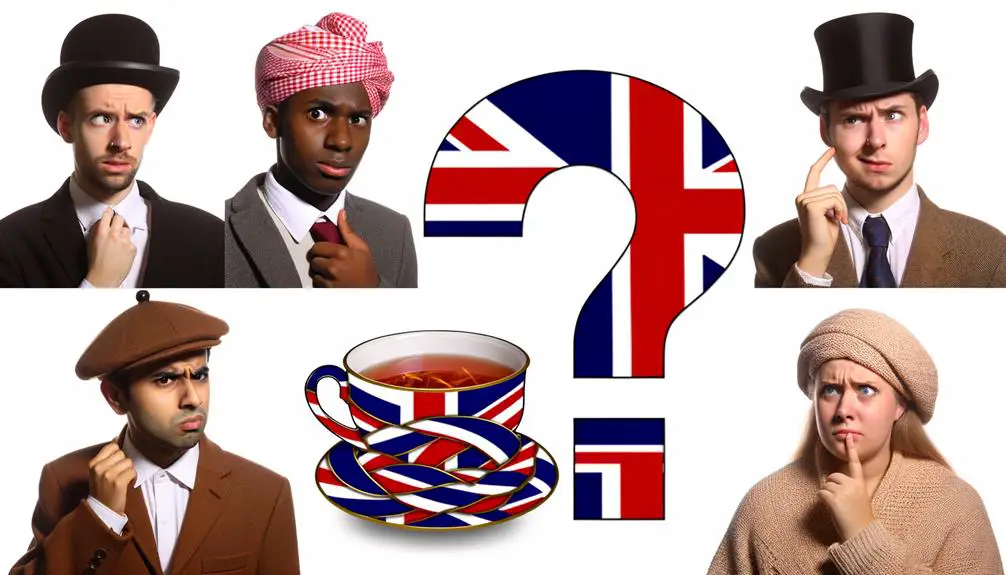
You must appreciate the cultural context's pivotal role in the interpretation of 'naf' to grasp its full meaning within British slang.
Ignoring this aspect often leads to significant misunderstandings, highlighting the consequences of misinterpretation that extend beyond mere communication errors.
These incidents underscore the nuanced complexities embedded in slang, demanding a careful consideration of both linguistic and cultural dimensions.
Cultural Context Importance
Understanding the cultural context of British slang, such as 'naf,' is vital to prevent controversies and misunderstandings that stem from its usage across different cultures. The nuances of slang often reflect societal attitudes and historical influences, making cultural adaptation and language evolution crucial in its understanding and application.
To appreciate the significance of cultural context, consider the following:
- Cultural Sensitivities: Recognizing the potential for words to have different connotations in various cultural settings.
- Historical Background: Understanding the origins and evolution of slang terms can prevent misinterpretation.
- Language Evolution: Acknowledging that language is dynamic and slang terms can shift in meaning over time.
Analyzing slang within its cultural and historical framework ensures a thorough grasp, fostering effective communication while mitigating the risk of unintentional offense.
Misinterpretation Consequences
Misinterpreting British slang like 'naf' can lead to significant controversies and misunderstandings, highlighting the importance of cultural literacy. When you're not fully versed in the nuances of local dialects, it's easy to misconstrue the intent or emotion behind words, leading to communication barriers.
These barriers don't just halt conversations; they can reinforce social stereotypes and widen gaps between different cultural groups. The social implications of misunderstanding slang are profound. They can transform benign interactions into tense exchanges, eroding trust and mutual respect.
Understanding the linguistic intricacies of 'naf' and similar slang isn't just about expanding your vocabulary; it's about bridging cultural divides and fostering more inclusive communication.
Preserving Slang Heritage
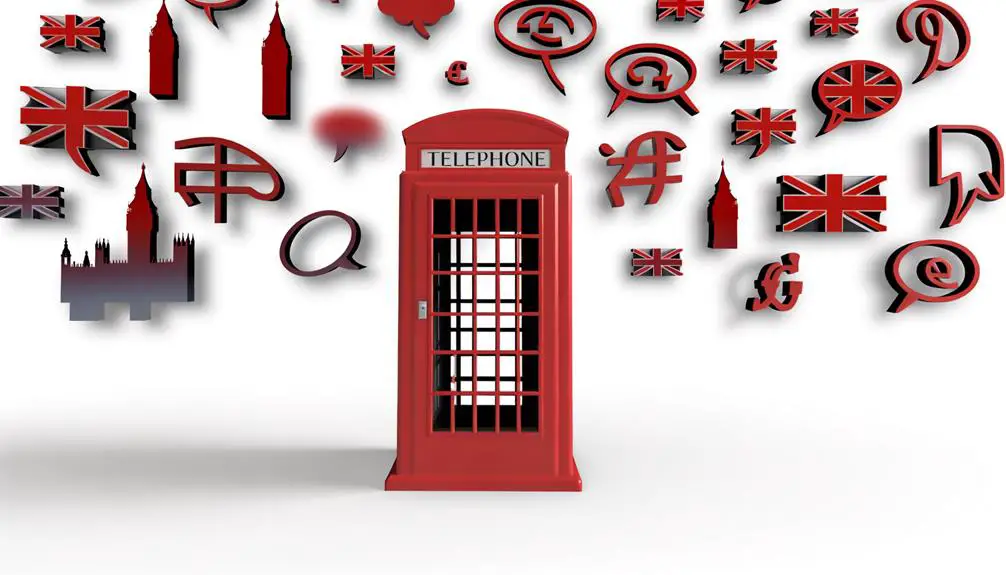
One must appreciate the cultural and historical significance of slang, recognizing its role in preserving linguistic diversity and social identity. The evolution of language is a dynamic process, reflecting the ever-changing landscapes of society. Within this transformation, slang emerges as an essential element, encapsulating the zeitgeist of its era. Hence, the documentation of slang, such as 'naf' within British lexicon, becomes paramount in understanding the nuanced layers of language evolution.
To preserve this linguistic heritage, several strategies are critical:
- Comprehensive Archives: Building extensive repositories that capture slang's richness and variability over time. This involves not just the cataloging of words, but also their contexts, usage, and shifts in meaning.
- Community Involvement: Engaging with the communities that originate and use slang actively. Their insights and experiences offer invaluable perspectives that enrich the documentation process.
- Digital Platforms: Utilizing technology to document and disseminate slang. Digital archives, social media, and apps can facilitate global access to slang resources, encouraging broader appreciation and study.
Preserving slang heritage isn't merely about compiling a list of quirky words; it's about safeguarding a living, breathing component of cultural identity. It requires a meticulous, engaged approach that respects the fluidity of language and the diversity of its speakers. Slang documentation thus serves not only as a linguistic endeavor but as a bridge connecting past, present, and future generations. Through these efforts, one secures that the vibrancy and significance of slang, in all its forms, are recognized and cherished.
Frequently Asked Questions
How Does the Perception of the Term 'Naff' Differ Across Various Age Groups in the Uk?
You're looking at how the term 'naff' is perceived differently across age groups in the UK, highlighting the generational gap in understanding slang. Younger folks might see 'naff' as quaint or retro, possibly embracing it in an ironic sense.
Older generations, however, could view it as straightforwardly uncool or tacky, a term they've used genuinely in the past. This divergence in age perception showcases the evolving nature of language and slang.
Can the Use of 'Naff' in Digital Communication (Texts, Social Media) Alter Its Perceived Intensity or Meaning?
Absolutely, the digital evolution has transformed words into an entire universe of meaning. When you sprinkle 'naff' into your digital chats or social media, its intensity and interpretation can shift dramatically.
It's not just about the word; it's how emoji adaptation and online context frame it, bending its perceived sharpness or softening its edges.
Analyzing these nuances reveals the intricate dance between language and technology, reshaping our understanding word by word.
Are There Any Notable Public Figures or Celebrities Who Have Publicly Commented on Their Feelings Towards the Use of 'Naff' in British Slang?
You're diving into how public figures view 'naff' in British slang, focusing on its origins and any celebrity endorsements.
While not many celebrities openly dissect slang, some have playfully used 'naff' in interviews or social media, indirectly commenting on its charm or lack thereof.
This subtle nod towards its usage reflects a broader cultural acceptance or rejection, shaping the term's evolution.
Analyzing these instances offers insights into societal attitudes towards slang and its impact on language.
How Has the Globalization of Culture Impacted the Understanding and Usage of 'Naff' Outside of the Uk?
Globalization's impact on the perception of the term 'naff' extends beyond the UK, as it blends cultural authenticity with language evolution. Witnessing this term, once uniquely British, weaving into global vernacular, highlights how its original context has been altered. This shift underscores the dynamic nature of language, influenced by global exchanges.
It's not merely about borrowing words; it's about how these words adapt, evolve, and sometimes lose their original essence. This phenomenon challenges the understanding of cultural authenticity in a globally connected world.
Are There Educational or Language Institutions in Britain That Formally Acknowledge 'Naff' as Part of the English Language Learning Curriculum for Non-Native Speakers?
You're diving into whether language institutions in Britain integrate 'naff' into their curriculum for non-native speakers, focusing on language accreditation and curriculum integration.
It's intricate because while 'naff' captures British cultural nuances, its formal acknowledgment varies.
Most language courses aim for broad vocabulary and essential communication skills, yet the inclusion of slang like 'naff' mightn't always align with academic or accreditation standards, despite its richness in conveying social contexts and linguistic flavor.
Conclusion
Fascinatingly, as you've explored the origins and evolution of 'naff', you might've come across its curious journey from underground jargon to mainstream vernacular.
It's no coincidence that 'naff', a term once restricted to specific subcultures, now finds itself ingrained in modern British dialogue. This linguistic shift mirrors broader societal changes, highlighting how language evolves and adjusts.
Amidst debates and misunderstandings, 'naff' stands as a proof to the enduring, dynamic nature of slang, challenging us to appreciate the intricate tapestry of language heritage.







